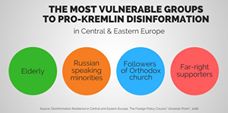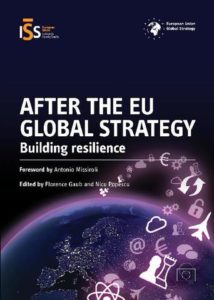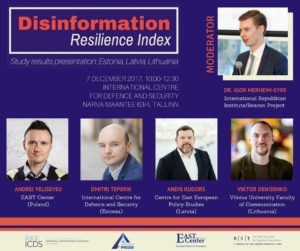 Democracies around the world are combating Russian election interference, a new report observes. Some of these countries have dealt with this interference better than others, and there are important lessons to be derived from these experiences, according to James Lamond and Talia Dessel, a senior policy adviser and research analyst, respectively, at the Center for American Progress.
Democracies around the world are combating Russian election interference, a new report observes. Some of these countries have dealt with this interference better than others, and there are important lessons to be derived from these experiences, according to James Lamond and Talia Dessel, a senior policy adviser and research analyst, respectively, at the Center for American Progress.
With these factors in mind, the report – Democratic Resilience: A Comparative Review of Russian Interference in Democratic Elections and Lessons Learned for Securing Future Elections – outlines Russian election influence operations and evaluates the responses from stakeholders. It determines the lessons to be learnt from these democracies, including what works and what does not when confronting Russian political assaults, which aim to further three overarching goals:

Source: EU vs Disinfo
- To sow political and social discord in the target countries
- To undermine and challenge the Western democratic system, especially in the eyes of transitioning democracies
- To shift policies in target countries to undermine the trans-Atlantic alliance and the European project.
Every country’s political process, history, and culture are unique, and there is no single model or formula for how to prevent and respond to foreign interference. But case studies suggest the following lessons and recommendations:
- Lesson 1: A forceful government response is the most important deterrent and mitigating factor…Recommendation: Send a clear, bipartisan message & Enact robust sanctions legislation
- Lesson 2: Situational awareness among voters is a very powerful defense…Recommendation: Develop and vigorously promote a public awareness campaign
 Lesson 3: An interference operation does not need to alter the outcome of an election to have a harmful impact…Recommendation: Demand full transparency & Strengthen disclosure requirements
Lesson 3: An interference operation does not need to alter the outcome of an election to have a harmful impact…Recommendation: Demand full transparency & Strengthen disclosure requirements- Lesson 4: Paper ballots help provide confidence in the integrity of the system…Recommendation: Require paper ballots and comprehensive audits
- Lesson 5: A trusted and reliable media is critical to cutting through foreign manipulation…Recommendation: Refuse to incentivize interference efforts
- Lesson 6: Financial flows are often an important component of Russian influence…Recommendation: Strictly regulate foreign money in U.S. elections
- Lesson 7: There is no foolproof way to protect elections…Recommendation: Develop a plan for fighting interference.
 European countries have been far more proactive when it comes to election security, and there is much that America can learn from its allies’ experiences, the authors conclude. By studying the lessons outlined above, candidates, political parties, and members of the public can help ensure that the United States will be better prepared to defend its elections from hostile foreign actors.
European countries have been far more proactive when it comes to election security, and there is much that America can learn from its allies’ experiences, the authors conclude. By studying the lessons outlined above, candidates, political parties, and members of the public can help ensure that the United States will be better prepared to defend its elections from hostile foreign actors.







